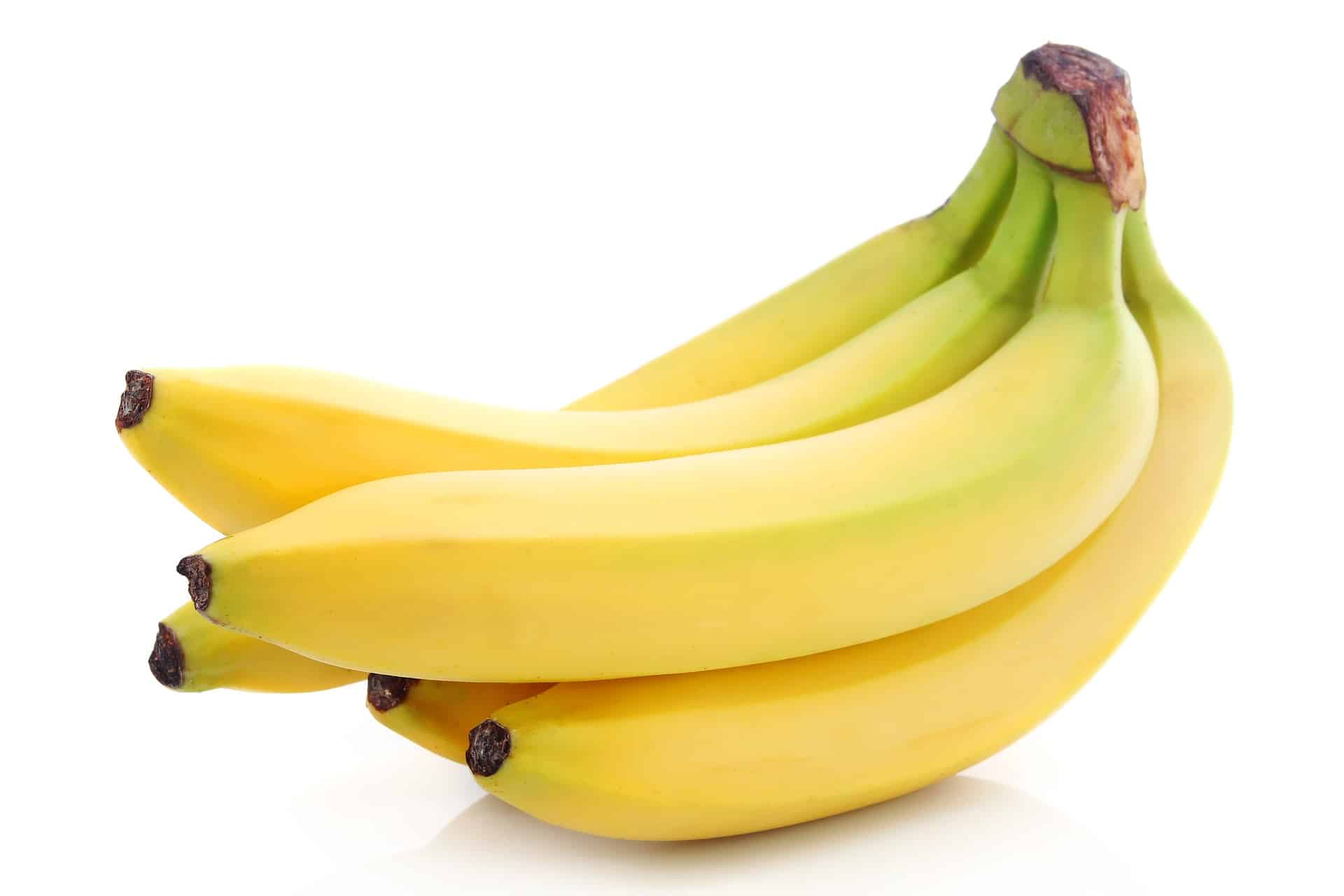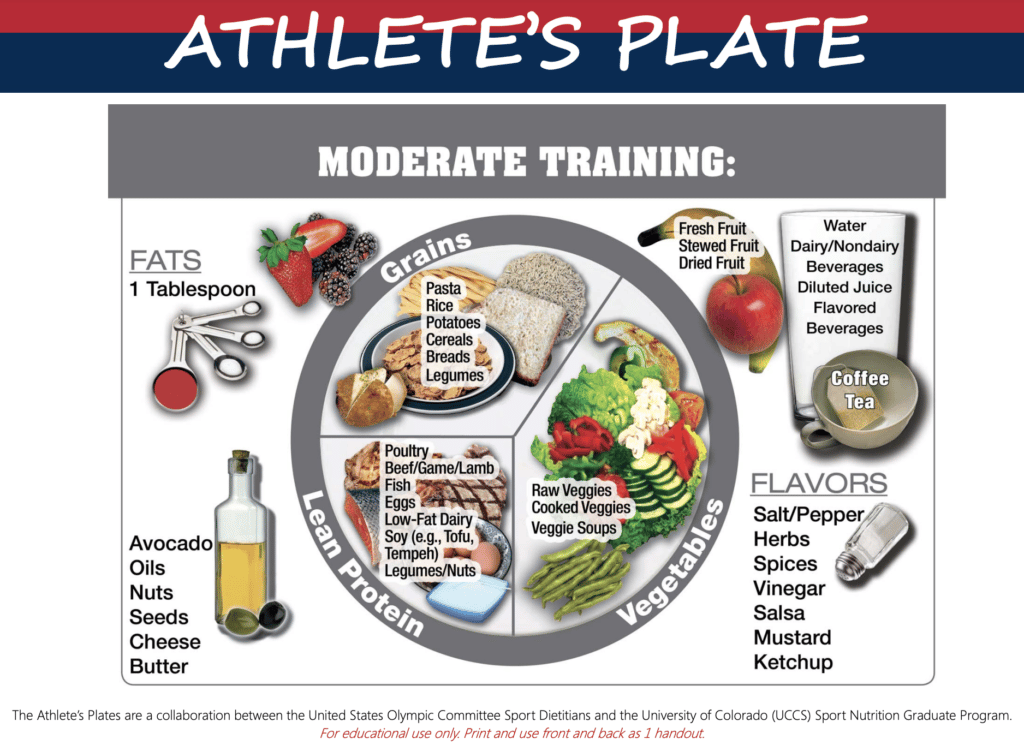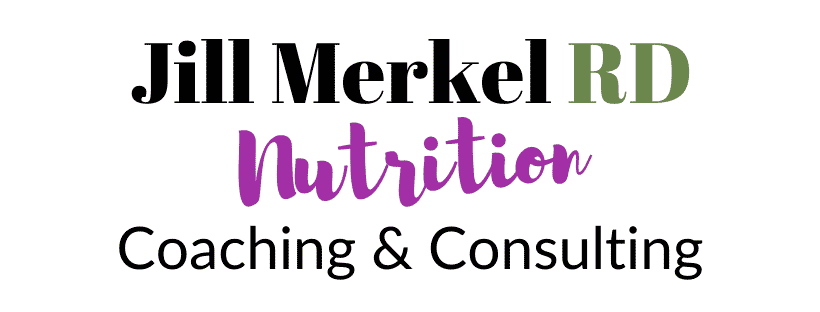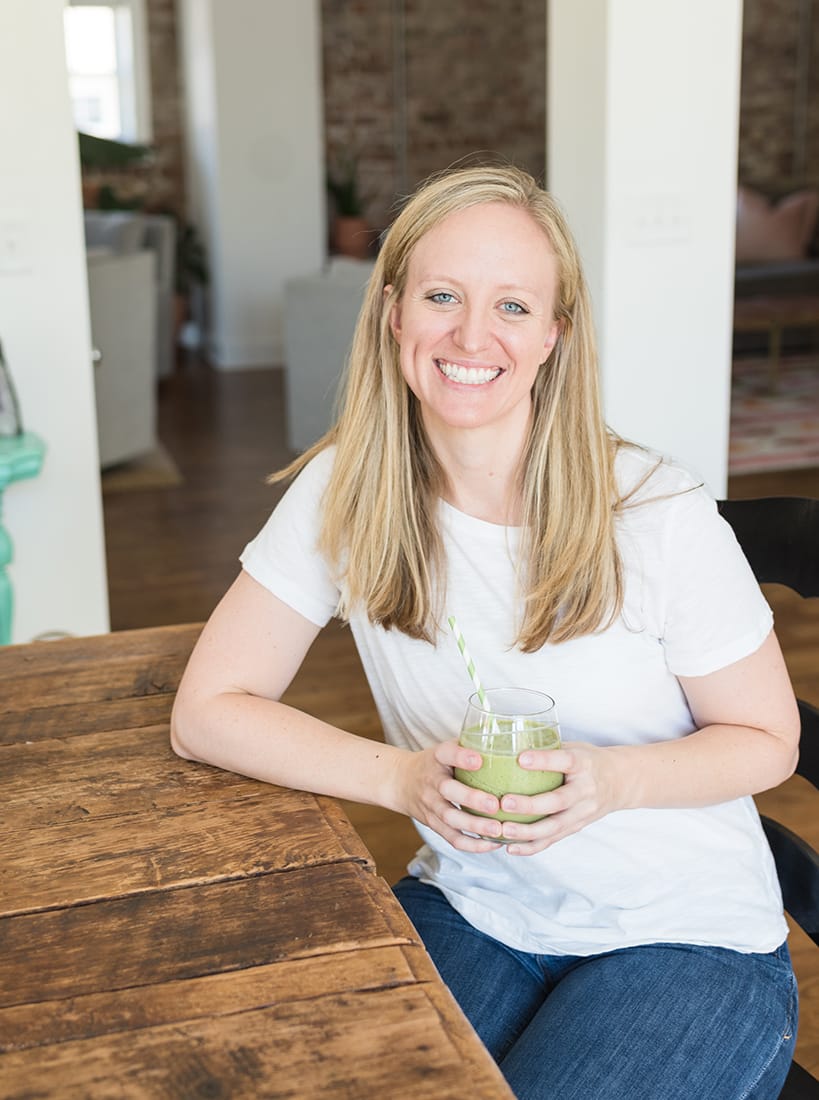“Are bananas bad?” or “I’ve heard bananas are bad because they’re high in sugar,” I hear from clients quite often. If you know my nutrition philosophy, you likely already know that I believe there are no bad foods. That includes bananas!
In this post, we’re going to look at some carbohydrate myths.

Are Bananas Bad?
Bananas (and carbs, in general) get a bad rap. I’m sure you’ve heard “carbs are bad” or you should cut carbs if you want to lose weight, etc. Carbs are not bad! Carbs serve a very important purpose: FUEL or energy. Carbohydrates are the preferred energy source for your muscles and brain. If you’ve heard the term “hangry” it’s because your brain needs carbs.
Bananas are higher in sugar than most other fruits. But this is naturally occurring sugars rather than added sugars in food items such as cookies or soda. Bananas are also a good source of potassium, fiber, Vitamin B6, and Vitamin C. So no, bananas are not “bad”.
I once witnessed a conversation between two adult men that went like this: Man #1 was describing his morning smoothie to me that included 2 bananas, some nut butter, and protein. Man #2 (holding two chocolate chip cookies) says “don’t you know bananas are bad for you and that they’re full of sugar?”. Cue me walking away. LOL.
So no, bananas are not bad. They, like all carbs, need to be consumed in moderation and based on your body size and activity level. One medium banana is considered two servings of fruit. So if you need a lower carbohydrate amount per day, you may meet your fruit needs with one banana or you may meet your fruit needs with one apple and one cup of strawberries. It all depends on your preferences, needs, and goals.
Other Carbohydrate Truths
Carbohydrate based foods are the preferred source of energy for your muscles and brain.
While carbs are NOT bad, they do tend to be the food group that is often over consumed. Eating out, in particular, has skewed our idea of portion sizes and often includes 2-3 times the amount of calories, carbs, or fat that we may need.
One serving of carbohydrates is about 1/4 of your plate or about 1 fist size serving. So if you go to Olive Garden and order a pasta dish, paired with breadsticks on the side, you’re likely getting at least 5 or more servings of carbs in that meal, which is not necessary, even for the most active individual.

Paleo, keto, or other low-carb diets are all the rage right now, especially for weight loss, but they are missing a key food group: carbs.
Quality carbohydrates (think whole grains, starchy vegetables, fruits, etc.) are very important for overall health. They are full of vitamins, minerals, and maybe most importantly: fiber. Fiber is vital for gut health, which contributes to a healthy immune system and inflammation management, as well as being important for colon health, heart health, and satiety (feelings of fullness).
So cutting carbs out completely or almost completely, is not the best idea as you will be missing out on some very important nutrients.
For athletes, in particular, the research continually shows, that carbohydrates are the preferred fuel source for muscles especially for high intensity exercise. Carbs = FUEL. The more active you are, the more fuel your body needs.
Think of it like putting gas in the tank of your car. If you are going on a long road trip, you are going to need more fuel. Your body is the same way. Your fuel tank will need to be replenished before, during, and after exercise, depending on duration and intensity. (Read: Is a Pre and/or Post Workout Snack Necessary?)
Some carbohydrate foods and serving sizes include:
- 1 slice Whole Grain Bread
- 1/2 cup Whole Grain Cereal
- 1/2 cup Oatmeal
- 1 English Muffin
- 5 Wheat Crackers
- 3 cups Popcorn, popped
- 1/2 cup Corn, Peas, Beans, Lentils
- 1/2 cup Pasta, cooked
- 1/4 cup Quinoa, Risotto
- 1/3 cup Brown Rice, Cous Cous
- 1/2 cup Mashed Potato or Sweet Potato
- 1 Medium Piece Fruit (Apple, Orange, Peach)
- 1/2 Banana
- 1 cup Grapes or Berries
- 2 Tbsp. Dried Fruit
- 4 oz. 100% Fruit Juice
Looking for More?
Worried You Are Under Fueling? Download my Free Guide on Relative Energy Deficiency in Sports (RED-S).
Individual Nutrition Coaching – if you’re looking for more individualized support, check out my options for working together one on one.
Intuitive Eating Support Group for Women – if you’re interested in learning more about Intuitive Eating and healing your relationship with food and exercise, this is the group for you!

